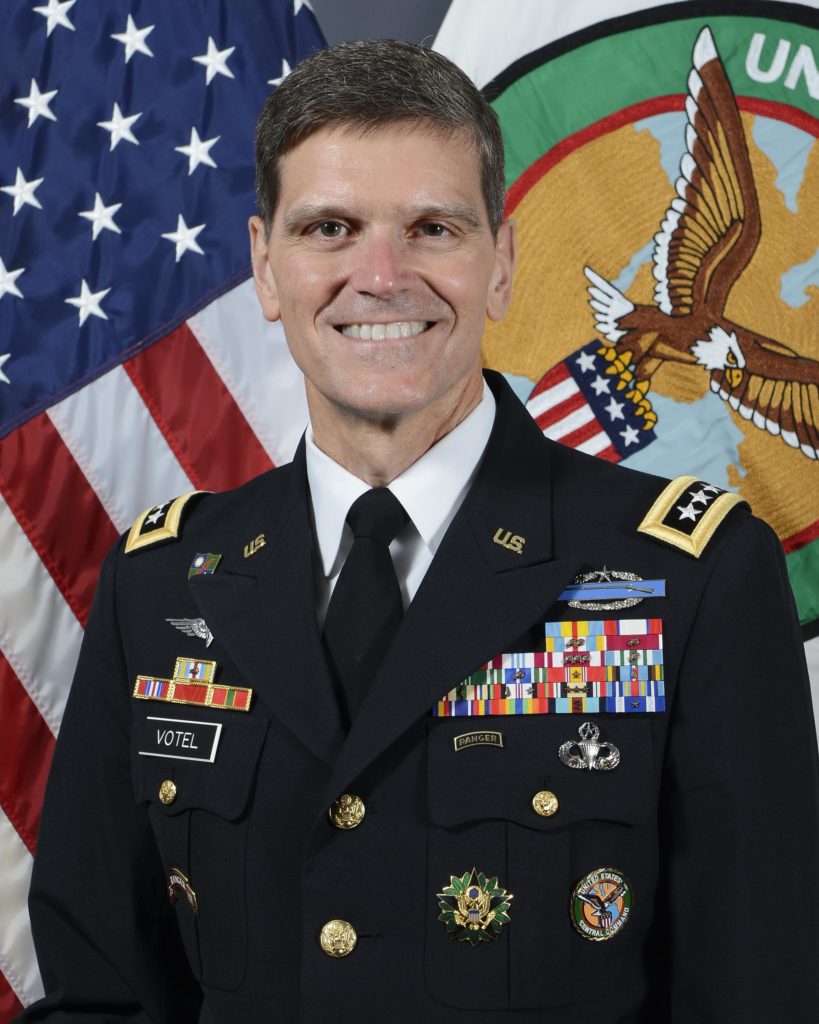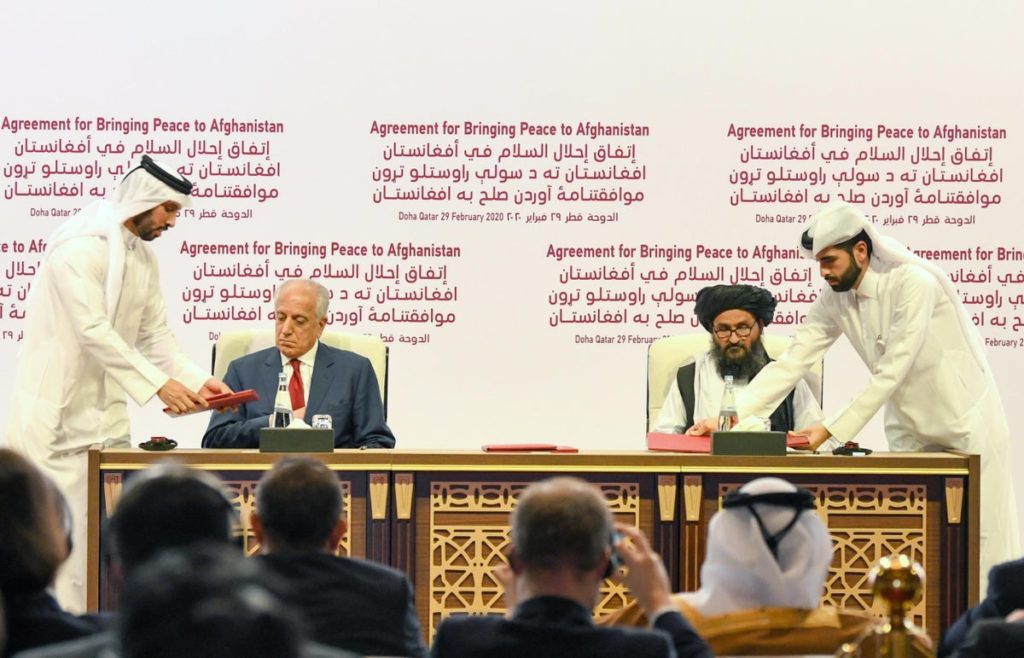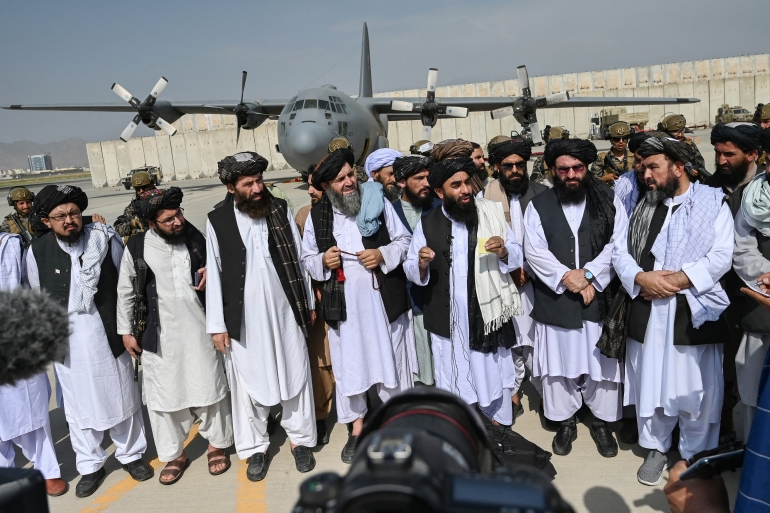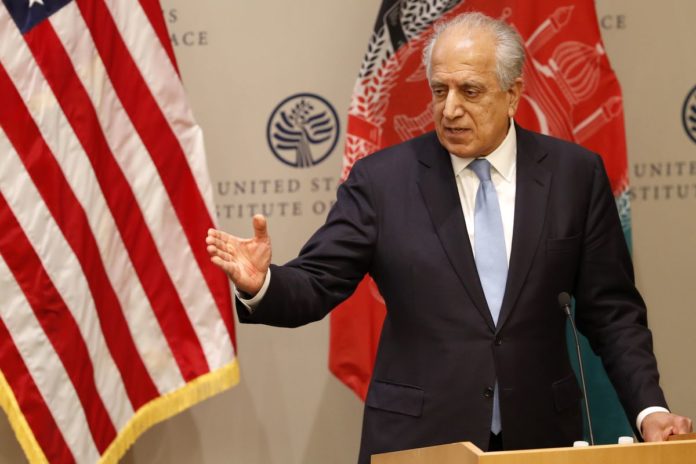The US and Afghan Taliban negotiators wrapped up their latest round of marathon peace talks on March 12 with “real strides” made but no agreement on a timetable for troop withdrawal, the US special envoy Ambassador Zalmay Khalilzad said. He divulged that the next step would be discussions in Washington, adding that “there is no final agreement until everything is agreed.” The talks spanned 16 days, which is the longest consecutive discussions held between both sides. It is unclear as yet when the next round of talks will take place.
The talks focused on the withdrawal of US troops and assurances that insurgents would not use Afghanistan’s territory to stage future attacks. “Progress was achieved regarding both these issues,” said a Taliban spokesperson. “For now, both sides will deliberate over the achieved progress, share it with their respective leaderships and prepare for the upcoming meeting.
Khalilzad has held a series of meetings with senior Taliban officials including Mullah Abdul Ghani Baradar, younger brother of erstwhile Taliban Supremo Mullah Umar who heads the Taliban’s Doha office in Qatar. Mullah Abdul Ghani Baradar, a co-founder of the Taliban was released last year from a Pakistani prison. His lead role in the talks with Khalilzad is considered significant because of his important role within the Taliban. His appointment is widely seen as a fresh effort by the Taliban to emerge from the political and diplomatic shadows. Baradar gave the opening address and met with all the US and Qatari officials. He has also acknowledged substantial forward movement during the latest round of talks.
These talks mark the highest-level negotiations between the two sides since the US ramped up peace efforts last year. General Scott Miller, the top US and NATO commander in Afghanistan has also attended at least some of the talks. Secretary of State Mike Pompeo has suggested he could visit Doha to help advance the negotiations “in a couple (of) weeks On March 07 General Joseph Votel head of US Central Command said the military has received no directions yet to withdraw from Afghanistan.
The Taliban have once again denied that they were discussing a ceasefire and dialogue with the Kabul government during ongoing talks with the US, contrary to statements from Washington. Earlier US State Department spokesman Robert Palladino had affirmed the opposite. “What we’re focusing on are the four interconnected issues that are going to compose any future agreement,” Palladino said listing them as “terrorism, “troop withdrawal, “intra-Afghan dialogue” and “ceasefire.
The path to peace doesn’t often run in a straight line. The situation in Afghanistan is complex and like all sensitive talks, not everything is conducted in public. Sources close to the Taliban said details of the negotiations will not be announced unless the two sides reach a conclusion on some disputed topics, including a timeline for withdrawal of US forces from Afghanistan and the assurance by the Taliban that Afghanistan’s territory is not used as a threat against interests of any other country. Afghan government worries that Washington could negotiate an abrupt pull-out in their absence, leaving communities that opposed the Taliban in danger and imperilling reforms.

General Joseph Votel told the House Armed Services Committee that the political conditions of where we are in the reconciliation right now don’t merit ‘withdrawal’. He pointed out that “Afghan government troops are not yet ready to stand on their own. Therefore, withdrawal decisions have to be based more on conditions than specific times and must pivot off political progress.” He advised that any decision to reduce forces in Afghanistan should be done in full consultation with other coalition partners and the government of Afghanistan.
US troop withdrawal and counter terrorism assurances by Taliban are the main issues under discussion. While these two agenda items are significant, neither is simple and neither are they sufficient to achieve peace. These are moves in a chess game that has run for quite some time. The US troop withdrawal has long been the Taliban’s priority, and that desire dovetails with President Trump’s apparently similar hope to withdraw US troops. In December in the aftermath of Trump ordering the withdrawal of US troops from Syria, the US press reported on chatter within the White House that Trump wanted to do much the same in Afghanistan.
The last round in January had secured a broad framework agreement but few details on critical aspects of a cease-fire and withdrawal.US President Donald Trump had told Congress in February that he intended to reduce US forces from Afghanistan as negotiators make progress in talks with Taliban insurgents, saying: “Great nations do not fight endless wars.” And, “We have all the right people in the room on both sides.” Trump declared.
The US is pushing the Taliban to meet with the Afghan government which the group has so far snubbed, and to agree to a cease-fire ahead of its annual spring offensive. The Taliban consider the Afghan government a puppet regime of the US and have refused direct talks. President Ashraf Ghani has, time and again, expressed frustration at being excluded from the negotiations.
According to President Ghani’s spokesman, Haroon Chakhansuri the main topics of the talks are withdrawal of foreign forces from Afghanistan, ensuring that Afghanistan’s territory is not used as a threat against any other country, a comprehensive ceasefire and direct talks between the Afghan government and the Taliban.
The Taliban are likely to refrain talking on other issues if the two sides do not reach a conclusion about the withdrawal of US forces from Afghanistan. “Ceasefire and the release of prisoners are marginal issues. I don’t think that they [Taliban] will talk about other issues unless there is clarity on the withdrawal of foreign forces,” said Sayed Akbar Agha, a former Taliban member.
High Peace Council (HPC) is of the view that the Taliban will not be able to achieve their objectives unless the group endorses negotiations with the Afghan government. “All demands the Taliban has will be addressed through an intra-Afghan dialogue,” said Abdul Khabir Ochqon, deputy head of HPC. In all likelihood HPC is also unaware of the details of the talks between the US and the Taliban.
Moreover, Chief Executive Abdullah Abdullah has said during a recent Council of Ministers’ weekly meeting that Taliban’s denial to engage in talks with the Afghan government is a major obstruction on the way of peace in the country. “So far, the Taliban has not been ready to talk with the government of Afghanistan. We also have the responsibility to remove the hurdles from the way of peace talks, in areas which are relevant to us. Still, lack of Taliban’s honest preparation for direct talks [with the Afghan government] is a key barrier,” Abdullah said.
United States Central Command (CENTCOM) Commander General Joseph Votel, in a briefing to the US Senate Armed Services Committee on March 07 said that terrorist organizations based in Afghanistan conduct attacks inside Pakistan and “continue to threaten Afghan stability as well as stoke tensions between Pakistan and India. Appreciating Islamabad’s efforts for regional peace, the US general said Pakistan has taken “positive steps to assist Ambassador Zalmay Khalilzad in support of Afghanistan reconciliation by facilitating talks with the Taliban. “If Pakistan plays a positive role in achieving a settlement to the conflict in Afghanistan, the US will have opportunity and motive to help Pakistan fulfil that role, as peace in the region is the most important mutual priority for the US and Pakistan.” “Our posture with Pakistan involves supporting our colleagues at the Department of State as they pursue a diplomatic solution with Islamabad to end the conflict in Afghanistan, while ensuring that Pakistan’s equities are acknowledged and addressed in any future agreement.
Pakistan’s Permanent Representative to the United Nations, Maleeha Lodhi has stated that ongoing troubles with India in Kashmir are diluting Pakistan’s attention and influence in the Afghan peace process. “The current crisis between Pakistan and India will obviously mean that Pakistan will have to put its full focus on its eastern border and it could affect what it is trying to do on the front with Afghanistan,” Maleeha Lodhi told Fox News. “In other words, our full focus is going to be on the eastern frontier rather than the western front and that could affect the peace process. Our attention is going to be where we feel there is a military threat to us.” Pakistan believes that the real threat is from the Indian border.

Marathon talks between the US and the Taliban in January saw the two sides walk away with a “draft framework” that included a Taliban vow to prevent Afghanistan from becoming a haven for international terror groups. Taliban spokesperson Zabiullah Mujahid told the Associated Press, “Yes, there is a possibility we will reach some results.” The two sides are looking to hammer out a timeline and logistics for a potential troop withdrawal. “The Taliban know foreign forces are committed to withdrawal but we have the responsibility to ensure that Afghanistan does not get used as a base to launch terror attacks on foreign nations, “one of the US officials said.
According to New York Times’ assessment of March 08 captioned “Afghan talks hinge on one question: What is terrorism? “More than a week after the US and the Taliban began another round of peace negotiations with high hopes, both sides are beginning to realize that their efforts will likely be complicated and frustratingly slow. Even the definitional issues regarding basic terms like terrorism have disagreements. Secretary of State Mike Pompeo has complicated matters by saying that he considered the “Taliban themselves terrorists.
Qatar’s foreign minister appeared upbeat about “a successful” conclusion of negotiations his country is hosting. Sheikh Mohammed bin Abdulrahman al-Thani told a joint news conference with visiting Russian Foreign Minister Sergey Lavrov that Doha will continue to play its role in “coordination and consultation” with international partners to achieve Afghan peace.” At the end, the result and peace cannot be brought by force or war. It has to be brought by talks and Qatar is continuing its role as a mediator We hope that we’ll have a successful outcome very soon,” noted al-Thani. “We appreciate everyone involved in building peace and stability into Afghanistan because we believe this is to the benefit of everybody,” Qatari foreign added.
Lavrov reiterated Moscow’s backing for the Afghan peace effort. “We do follow, we do monitor the talks between the United States and the Taliban,” said the Russian Foreign Minister. He added that Moscow is playing its role in mobilizing the international community, especially neighbours of Afghanistan, to help launch an Afghan political process. Lavrov noted that Moscow and Washington are in “a good contact” with each other over the Afghan peace process.” I think this is very useful instead of being rivals and having this kind of artificial competition. We should work together we can all help the people of Afghanistan to launch this national dialogue which alone can resolve and stop this conflict,” Lavrov emphasized.
The Taliban have announced that talks with the US were making “a steady progress” and vowed to remain engaged in the process until achieving results. But media reports have speculated about a stalemate in the talks, prompting a Taliban spokesman to try to dismiss the speculation through a statement to media. “The current round of talks in Doha are advancing on a step-by-step basis. As the issue at hand is immensely crucial and delicate, it’s progression is taking place with that much care and vigilance,” Zabihullah Mujahid explained. He emphasized, “It should be mentioned that no understanding has so far been reached about any agreement or document Taliban spokesman Suhail Shaheen told the AP that the two sides are close to an agreement “If we do not reach a solution in this round of talks, then we will in the next round of talks, but that is our target,” he said. Expectations remain high.
The peace effort and Taliban’s major attacks continue in tandem, in one such attack, Taliban fighters killed at least 23 Afghan security forces in an attack on Camp Shorab, a sprawling military base in Helmand. The proposed deal would include, as AP wrote it, “guarantees that Afghanistan will not be used again as a staging arena for anti-American attacks.” appears to leave out the Afghan government and attacks within Afghanistan.
The heavy fighting has been costly for Afghan security forces. While the Afghan Ministry of Defence stopped publicly releasing casualty figures, Ghani said 45,000 Afghan security forces have been killed since September 2014. Last year was the deadliest for civilians in Afghanistan according to the United Nations with 3,804 civilian deaths. The UN says at least 32,000 civilians have been killed and another 60,000 wounded in the past decade, when the organisation began compiling the data. CBS News has aptly reported that if a troop withdrawal were to happen, it comes at a time when the Taliban’s control of areas across Afghanistan is at a record high, as are civilian casualties.
Details are still awaited about the fifth round of marathon peace talks. This is a moment for Afghans to begin to heal old wounds and chart a new course for their country. There are many players, many issues, and many moving parts. However, in-tandem activism by the US and Taliban, through peace process and militancy is not a very efficient way for achieving early peace and political settlement. Reportedly, the Taliban are pressing the US to withdraw within six months from Afghanistan, but the United States side insists that they cannot do so in six months and they need more time—3-5 years.
There is a growing realization within and amongst Afghanistan’s immediate neighbours that the region can no longer solely depend on the international community, and that it is time for them to take ownership of the region. While Pakistan, Iran, China and the Central Asian States have already been playing an instrumental role in the Afghan peace process through several initiatives, more recently, Moscow too has become active, as one has seen in the Moscow Format talks in November 2018, as well as recent intra Afghan talks in Moscow in February 2019.
More than 50 delegates participated in the meeting in February 2019, the level of participation from the Afghans was rather broad based including two women parliamentarians. The talks in Moscow, however, did not include members from the Afghan government, who vehemently opposed the meeting and questioned the authority and legitimacy of participants. Taliban, for the first time, openly and publically participated in direct talks with other Afghan factions that brought Taliban’s view point to the forefront. Influential Afghan figures including some contesting presidential elections, along with serving and former advisors to President Ghani openly exchanged views with the Taliban.
Interestingly, while President Ghani has opposed the notion of an ‘interim’ set up which the Taliban and the US have been deliberating upon, majority of the political figures in Moscow supported the idea of an interim set up, which according to them would pave the way for a transparent election. The Moscow meet clearly showed that the Taliban have been reaching out to different political figures and factions and is making alliances for any future political set up. Those who took part validated the Taliban’s stance on a number of issues such as US troop withdrawal, an interim set up, changes to the current Afghan constitution, future elections, etc.

There was consensus on a number of issues that is being considered as a blue print for the future Afghan state which was reflected in the joint statement released by the participants at the end of the Moscow Talks. All the parties agreed on the complete withdrawal of foreign forces from Afghanistan, asking all countries to avoid interfering in Afghanistan’s internal affairs, providing assurance to the international community that Afghanistan will not be used against any other nation, protection of social, economic, political and educational rights of the Afghan women in line with Islamic principles, protection of political and social rights of the entire people of Afghanistan and protection of freedom of speech in line with Islamic principles, and undertaking efforts for attracting international assistance for the reconstruction of Afghanistan’s infrastructure. The Taliban group said that they did not want a monopoly of power, as acquiring the whole country by force will not help as it will not bring peace to the country, the group did not want a complete ‘military’ victory but wanted to find a solution through peaceful means and dialogue, with the aim that once foreign forces withdrew there should be no intra Afghan conflict but longer-term peace; indicating that they may be open to a power sharing set up in the future.
While the Taliban continue to emphasize on the withdrawal of US forces, at the same time the group has stated that the Taliban would like to have friendly ties with the US and would want the US to come back and help build the country through reconstruction and development, which is a clear departure from their previous views. The group further stated that the future Afghan constitution must be based on “principles of Islamic religion, national interests, historical achievements and social justice, Afghan nationalism, commitment to ensuring human dignity, national values and human rights, and should guarantee territorial integrity of the country and all rights of all the citizens. The draft of such constitution should be prepared by Afghan scholars and intellectuals in an atmosphere of freedom. “Considering the fact that earlier the Taliban would never talk about concepts such as human rights, Afghan nationalism, rights of all the citizens including women, is certainly indicative of a growing change within the group. That the Taliban are making a conscious effort to address such issues need appreciation.
Despite the positive developments in Moscow, the gathering has further added to Kabul’s concerns of being left out of the peace process, as well as raising questions about the legitimacy of President Ghani’s government. Ghani on the other hand has not only criticized but openly questioned the authority of those Afghans that took part in the dialogue and has said that without Kabul’s participation there can be no peace deal. In fact, President Ghani deliberately gave a public interview on the first day of the Moscow talks, referring to the talks as ‘unsanctioned’ and having no executive authority. Many of those that attended oppose the Ghani regime and their participation is seen by Kabul as a clear sign that they are working to undermine the current government’s legitimacy. Within hours of the meeting, a vicious blame game had begun between those attending the talks and the Afghan government highlighting that the ethnic and political divide is one of the biggest obstacles to achieving peace in Afghanistan. Another major issue that is causing friction, particularly in Kabul is the multiplicity of processes and lack of coordination.
Also, what makes the Moscow initiative significant is the new role Russia is assuming for itself in a country where many still look upon her with suspicion and even contempt. Evolving regional dynamics and growing concerns over the presence of Daesh/Islamic State Khorasan Province (ISKP) appear to be behind Moscow’s growing interest. Moscow has altered its policy by not only engaging and cooperating with regional countries to counter the ISKP, but also with different Afghan figures, as well as the Taliban. Moreover, it is not only the Taliban that appear to be validating Moscow’s reassertion, Afghan political figures also realize the growing role of Russia and their participation in the talks is a clear example of this.
Hence, Russia has done what the US has not been able to do, bringing the Taliban to the forefront and hold the first intra-Afghan dialogue between the Taliban and prominent Afghan figures. The Moscow dialogue has clearly added impetus to the peace process by bringing in the new dimension of intra-Afghan talks.
Despite these positive developments there are a number of complexities and spoilers involved in the peace process starting from elements within the Kabul and the Taliban who oppose talks, to the Taliban’s opposition to engage with the Ghani government. India is a major disrupter of peace process as it wants to keep Pakistan’s Western border hot and reach out to Central Asia through the Iranian port of Chahbahar. Perseverance, moderation of expectations and patience are key to success.





